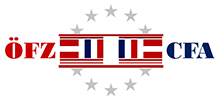The Politics of the Eastern Partnership. Looking Ahead to a New Decade of Challenges
The European Union and the Western Balkans: Moving apart or together?
July 30, 2018Beyond Emigration, towards Alternative Horizons: Young Generations for the new Balkans
September 7, 2018The Politics of the Eastern Partnership. Looking Ahead to a New Decade of Challenges
Eastern Partnership Reflection Conference
The Politics of the Eastern Partnership
Looking Ahead to a New Decade of Challenges
A conference organised in the frameworks of
the Eastern Partnership Reflection Forum initiative and
the Austrian Presidency of the Council of the European Union
Vienna, 29-30 October 2018
The Eastern Partnership (EaP) was founded in 2009 by the European Union (EU) to strengthen its relations with interested partner countries (Armenia, Azerbaijan, Belarus, Georgia, Moldova, and Ukraine) and promote regional stability through trade agreements and democratic institution-building. But almost ten years of EaP have only produced mixed results, regardless of the growing interest shown by some partners for this policy framework. Human security, all in all, has hardly improved in most parts of the EU’s Eastern neighbourhood. And dividing lines running across a region targeted by competing regional integration projects have not helped to strengthen European security.
These limitations, which have been tentatively addressed by a growing emphasis put on resilience, differentiation and joint ownership, have questioned the adequacy of the EaP in times of geopolitical turmoil. But the challenge faced by the EU in advancing a more effective EaP is not only external, to be derived from specific political contexts in the Eastern neighbourhood. It is also internal to the EU.
Almost ten years after the inception of the EaP, the member states of the EU still share relatively different views as for raison d’être, importance and/or finalité of the EaP. This plurality of views undermining the strategic character of the EaP is embedded in the politics of the EU’s external action in its Eastern neighbourhood. In the near future, the EU’s reform agenda, upcoming negotiations on the multiannual financial framework, Brexit, European elections and other internal affairs will continue to capture the attention and mobilise the energy of the member states and EU institutions. They will possibly limit the advancement of a more integrated and strategic EaP approach to European security.
Organised in the framework of the Austrian Presidency of the Council of the European Union, this interactive event will discuss the politics of the Eastern partnership in the current wider European context, beyond the sheer agenda of the next EaP Summit:
• How successful has the EaP been in promoting regional stability and human security over the last decade?
• How to ensure a greater consistency between the advancement of the EaP as policy framework at the service of European security and the interwoven variety of political interests underpinning the EaP?
• What should be changed in the EaP to increase joint-ownership at the political -rather than institutional- level?
• How much linked are the EU’s internal reform agenda and the advancement of the EaP?
• What can we expect from the next EaP Summit?
This Reflection Conference will build on the Eastern Partnership Reflection Forum, an initiative launched in Minsk in 2017 by a pan-European network of think-tanks. Its aim is to advance an inclusive, pan-European reflection at the strategic level and with a policy-oriented focus on the Eastern Partnership and encourage synergies across research institutions. This Reflection Conference will pave the way for the next Eastern Partnership Reflection Forum, planned for autumn 2019 in Chisinau.
